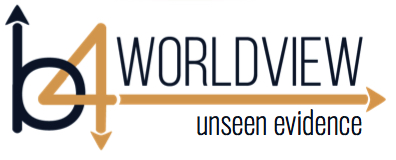
Key Thought for this session:
“Without a compass, the journey is futile.”
In session 6 we spent a lot of time discussing ways people view truth. Remember, some see truth as relative and some as absolute. That is, some people see that truth about an object is whatever someone or some culture decides it is. This is called relative truth. The opposite view of truth is that truth is stable across time and situations and is independent of what anyone’s experience suggests is true. This is absolute truth - sometimes called “true north.” We might say, “North is north and it doesn’t matter who you ask or when you ask them.” One’s opinion, regardless of how things look and how much they believe otherwise, does not change where north is.
Sometimes, for people like John F. Kennedy Jr., properly identifying “true north” meant life or death. One night, flying a short simple trip from Long Island to Martha’s Vineyard, he thought he was flying his plane up into the sky, disregarding his instrument panel. Going on what he felt to be true, John Jr flew his plane down into the ocean. He was wrong, regardless of what he felt. And the consequences were devastating. Everyone aboard the plane died.
We also discussed truth in terms of whether choices are right or wrong. We said sometimes a choice is NOT either right or wrong - choices are preferential - when the outcomes of different choices have the same effect, like two routes to town that get you there with the same effort and the same amount of time. We also said choices may be competing. In this case one choice is considered right and one wrong – one choice produces a “better” outcome than the other choice. “Better” here means more aligned with what is true. But that leaves us with the question – what is true?
As we have been discussing all along - people take different paths to believe what is true. People who think truth is relative tend to focus more on how using THEIR eido, or head knowledge, can show them what they should believe is true. While rarely seeing a need to depend on intuition, conscience or revelation, some people trust their ability to get to what’s true by gaining more and more eido knowledge. People who see truth as relative focus on trying to gather more scientific evidence about an object. They pretty much ignore exploring the core assumptions that are embedded in their axioms, and thus they don’t recognize their actual reliance on faith.
In times and situations where our choices are preferential, truth may seem relative. This is OK. BUT, we see all around us choices in life where there is only one right answer. It is to these choices that this session is dedicated. That is, when we are faced with competing choices, how do we know which is true? After all, even scientists understand they cannot fully rely on science; using physical evidence alone is, at best, a probabilities game, and is never 100% conclusive.
Before we look at the ways to examine core assumptions and views about truth-- that cannot be proven, think a moment about where you think your core assumptions or unquestioned beliefs come from?